Here at the library we sometimes get groups of books about a particular subject and we like to share them out. This time it’s about science. These books are all shelved at the library on the main campus, but they can be sent out to any of the centers with a request. We shared new science books in 2016 (as recommended by the Smithsonian) and Spring 2023 and Summer 2023.
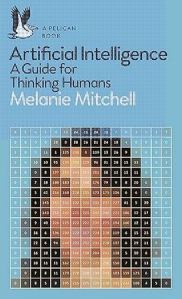 Artificial Intelligence: A Guide for Thinking Humans by Melanie Mitchell, Call Number: 006.3 M682a
Artificial Intelligence: A Guide for Thinking Humans by Melanie Mitchell, Call Number: 006.3 M682a
The Art of Yellowstone Science ~ Mammoth Hot Springs as a Window on the Universe by Bruce W. Fouke and Tom Murphy, Call Number: 551.2 F766a
As Gods: A Moral History of the Genetic Age by Matthew Cobb, Call Number: 660.65 C653a
Battle for Your Brain: Defending the Right to Think Freely in the Age of Neurotechnology by Nita A Farahany, Call Number: 174.29 F219b
Beyond Measure: The Hidden History of Measurement from Cubits to Quantum Constants by James Vincent, Call Number: 530.809 V772b
Birds and Us: A 12,000-Year History from Cave Art to Conversation by Tim Birkhead, Call Number: 598 B619b
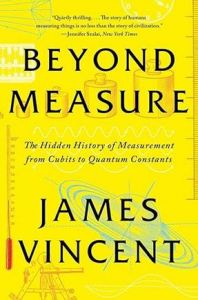 Blood, Powder, and Residue: How Crime Labs Translate Evidence into Proof by Beth A. Bechky, Call Number: 363.25 B391b
Blood, Powder, and Residue: How Crime Labs Translate Evidence into Proof by Beth A. Bechky, Call Number: 363.25 B391b
The Blue Machine: How the Ocean Works by Helen Czerski, Call Number: 551.46 C998b
Cry, Baby: Why Our Tears Matter by Benjamin Perry, Call Number: 152.4 P462c
NOTE: “Cry, Baby explores humans’ rich legacy of weeping—and why some of us stopped. With the keen gaze of a journalist and the vulnerability of a good friend, Perry explores the great paradoxes of our tears. Why do we cry? In societies marked by racism, sexism, and homophobia, who is allowed to cry—and who isn’t? And if weeping tells us something fundamental about who we are, what do our tears say? Exploring the vast history, literature, physiology, psychology, and spirituality of crying, we can recognize our deepest hopes and longings, how we connect to others, and the social forces bent on keeping us from mourning. When faced with the private and sometimes unspeakable sorrows of daily life, not to mention existential threats like climate change and systemic racism, we cry for the world in which we long to live. As we reclaim our crying as a central part of being human, we not only care for ourselves and relearn how to express our vulnerable emotions; we also prophetically reimagine the future. Ultimately, weeping can bring us closer to each other and to the world we desire and deserve.”
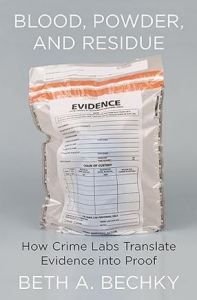 Curious History of the Heart: A Cultural and Scientific Journey by Vincent M. Figueredo, Call Number: 612.17 F475c
Curious History of the Heart: A Cultural and Scientific Journey by Vincent M. Figueredo, Call Number: 612.17 F475c
The Deepest Map: The High-Stakes Race to Chart The World’s Oceans by Laura Trethewey, Call Number: 551.468 T799d
Empire of the Sum: The Rise and Reign of the Pocket Calculator by Keith Houston, Call Number: 510.284 H843e
Existential Physics: A Scientist’s Guide to Life’s Biggest Questions by Sabine Hossenfelder, Call Number: 530.01 H829e
The Exceptions: Nancy Hopkins, MIT, and the Fight for Women in Science by Kate Zernike, Call Number: 509.252 Z586e
Eyeliner: A Cultural History by Zahra Hankir, Call Number: 391.63 H241e
Foreign Bodies: Pandemics, Vaccines, and the Health of Nations by Simon Schama, Call Number: 614.49 S299f
Future Foods: How Modern Science Is Transforming The Way We Eat by David Julian McClements, Call Number: 641.3 M126f
Girl Archaeologist: Sisterhood in a Sexist Profession by Alice Beck Kehoe, Call Number: 930.109 K269g
NOTE: “Girl Archaeologist recounts Alice Kehoe’s life, begun in an era very different from the twenty-first century in which she retired as an honored elder archaeologist. She persisted against entrenched patriarchy in her childhood, at Harvard University, and as she did fieldwork with her husband in the northern plains. A senior male professor attempted to quash Kehoe’s career by raping her. Her Harvard professors refused to allow her to write a dissertation in archaeology. Universities paid her less than her male counterparts. Her husband refused to participate in housework or childcare.”
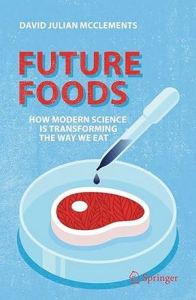 How Far the Light Reaches: A Life in Ten Sea Creatures by Sabrina Imbler, Call Number: 578.779 I324h
How Far the Light Reaches: A Life in Ten Sea Creatures by Sabrina Imbler, Call Number: 578.779 I324h
Invisibility: The History and Science of How Not to be Seen by Gregory J. Gbur, Call Number: 535 G291i
NOTE: “Is it possible for something or someone to be made invisible? This question, which has intrigued authors of science fiction for over a century, has become a headline-grabbing topic of scientific research.”
The Joy of Science by Jim Al-Khalili, Call Number: 501 A316j
NOTE: “In this brief guide to leading a more rational life, acclaimed physicist Jim Al-Khalili invites listeners to engage with the world as scientists have been trained to do. The scientific method has served humankind well in its quest to see things as they really are, and underpinning the scientific method are core principles that can help us all navigate modern life more confidently. Discussing the nature of truth and uncertainty, the role of doubt, the pros and cons of simplification, the value of guarding against bias, the importance of evidence-based thinking, and more, Al-Khalili shows how the powerful ideas at the heart of the scientific method are deeply relevant to the complicated times we live in and the difficult choices we make.”
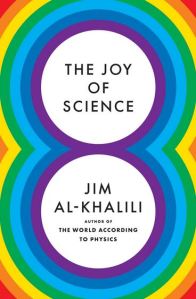 Mapping the Darkness: The Visionary Scientists Who Unlocked the Mysteries of Sleep by Kenneth Miller, Call Number: 612.821 M648m
Mapping the Darkness: The Visionary Scientists Who Unlocked the Mysteries of Sleep by Kenneth Miller, Call Number: 612.821 M648m
Of Time and Turtles: Mending the World, Shell by Shattered Shell by Sy Montgomery, Call Number 597.92 M788o
NOTE: A look at how people are working to save turtles and why turtles matter.
On Life: Cells, Genes, and the Evolution of Complexity by Franklin M. Harold, Call Number: 570 H292o
Our Moon: How Earth’s Celestial Companion Transformed the Planet, Guiding Evolution, and Made Us Who We Are by Rebecca Boyle, Call Number: 525.3 B792o
Pandemic of Delusion: Staying Rational in an Increasingly Irrational World by Tyson Gill, Call Number: 370.152 G475p
Poison Like No Other: How Microplastics Corrupted Our Planet and Our Bodies by Matt Simon, Call Number: 363.738 S595p
NOTE: Plastic doesn’t go away easily – it just breaks down and it gets smaller. Smaller pieces that can effect more of our life systems.
Proving Ground: The Untold Story of the Six Women Who Programmed the World’s First Modern Computer by Kathy Kleinman, Call Number: 004.092 K639p
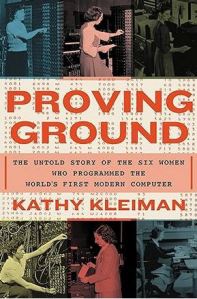 The Sounds of the Cosmos: Gravitational Waves and the Birth of Multi-Messenger Astronomy by Mario Diaz, Gabriela Gonzalez, and Jorge Pullin, Call Number: 539.754 D615s
The Sounds of the Cosmos: Gravitational Waves and the Birth of Multi-Messenger Astronomy by Mario Diaz, Gabriela Gonzalez, and Jorge Pullin, Call Number: 539.754 D615s
Thinking with Your Hands: The Surprising Science Behind How Gestures Shape Our Thoughts by Susan Goldin-Meadow, Call Number: 153.69 G619t
What a Bee Knows: Exploring the Thoughts, Memories, and Personalities of Bees by Stephen Buchmann, Call Number: 595.799 B919w
Women in Science Now: Stories and Strategies for Achieving Equity by Lisa M. P. Munzo, Call Number: 500.82 M967w
Sarah Uthoff is a reference library at Kirkwood Community College. LIKE the Kirkwood Community College Library on Facebook and find links to Sarah all over the web at her About Me Profile.
